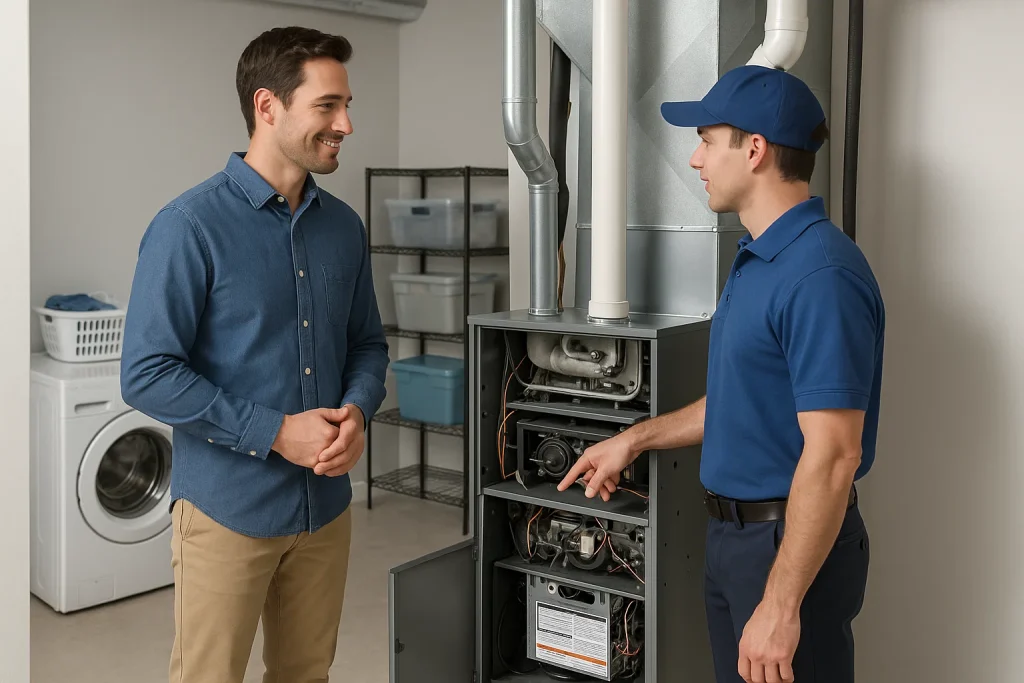When it comes to choosing the right furnace for your home in Warner Robins, GA, efficiency is often one of the first things homeowners consider. A furnace that runs efficiently not only saves you money on monthly utility bills but also provides reliable comfort throughout the colder months. At Premier, we want to help you make an informed decision by explaining the efficiency ratings of furnaces in Warner Robins, GA and what they mean for your home.

What Does AFUE Stand For?
The most common measure of furnace efficiency is the Annual Fuel Utilization Efficiency (AFUE) rating. AFUE represents the percentage of fuel your furnace converts into usable heat for your home. For example, a furnace with an 80% AFUE rating converts 80% of its fuel into heat, while the remaining 20% is lost through exhaust. The higher the AFUE rating, the more efficient the furnace.
Typical AFUE Ratings
Older furnaces: Many units installed decades ago have AFUE ratings of 60–70%. That means up to 40% of the fuel was wasted.
- Mid-efficiency furnaces: Modern standard furnaces often range from 80–85% AFUE.
- High-efficiency furnaces: Advanced models can achieve 90–98% AFUE thanks to features like secondary heat exchangers and sealed combustion.
Upgrading to a furnace with a higher AFUE rating can lead to significant energy savings, especially if you’re replacing a much older unit.
Why Electric Furnaces Are Rated at 100%
Electric furnaces are unique in that they always achieve a 100% AFUE rating. Every bit of electricity they consume is converted directly into heat, which means nothing is wasted through venting. At first glance, this might make electric furnaces seem like the most efficient choice. However, efficiency on paper doesn’t always translate to lower operating costs in practice.
The Cost of Electricity vs. Gas
While electric furnaces are technically 100% efficient, electricity is often more expensive than natural gas in Warner Robins. As a result, heating a home with an electric furnace can cost significantly more each month, even though no energy is wasted. Gas furnaces with 90% or higher AFUE ratings typically deliver the best balance of efficiency and affordability for most households.
Other Factors That Affect Efficiency
AFUE ratings provide an important baseline, but they don’t tell the whole story. Several other factors play a role in how efficiently your furnace heats your home:
- System size: An oversized or undersized furnace will cycle too often or run too long, wasting energy.
- Ductwork: Leaky or poorly insulated ducts can allow heated air to escape before it reaches your rooms.
- Maintenance: A furnace that isn’t regularly serviced will lose efficiency due to dirty filters, worn parts, or neglected components.
Premier offers comprehensive furnace services, including professional installation, duct testing and sealing, and preventative maintenance, so your system operates at its peak potential.
Choosing the Right Furnace for Your Home
When deciding on a furnace, it’s important to balance efficiency ratings with fuel costs, installation requirements, and your long-term comfort goals. A gas furnace with a high AFUE rating may be the most cost-effective choice, while an electric furnace might be suitable for homes without access to natural gas. Our experts at Premier can walk you through the options, explain the differences, and help you choose the system that best fits your home and budget.

